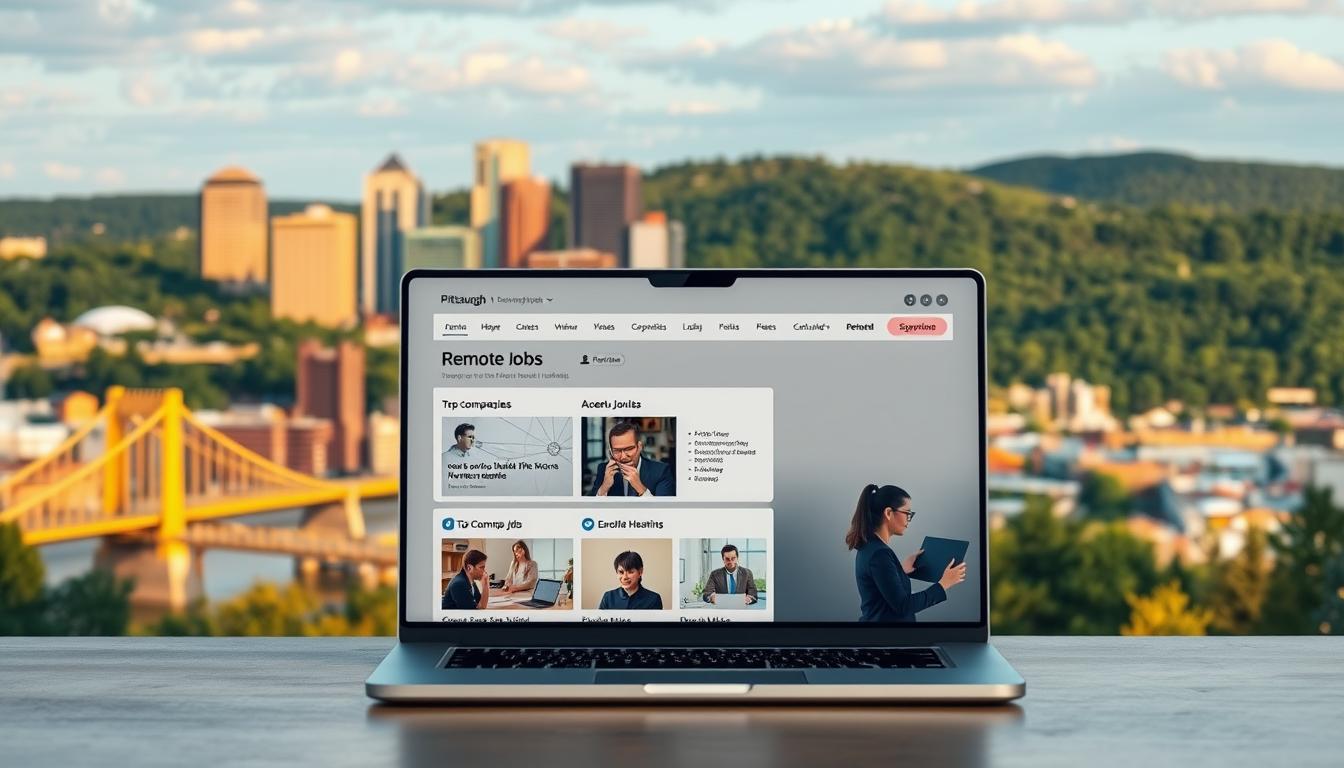Entry-level opportunities dominate the traffic control sector, with major employers like Flagger Force hiring over 15,000 new workers annually. These positions require no prior qualifications – companies provide paid certification training while emphasizing physical stamina and safety awareness as primary hiring criteria.
Modern job seekers now use automated tools like RoboApply’s Auto Apply feature to simultaneously submit tailored applications across multiple employers. This approach helps candidates bypass traditional barriers while targeting organizations known for rapid promotions – some workers advance to supervisory roles within 60 days.
Your success hinges on demonstrating reliability through proper documentation (valid driver’s license, reliable transportation) and preparedness for outdoor work conditions. Many high-paying roles requiring no college degree follow similar hiring patterns, focusing on trainable attributes over formal credentials.
Key Takeaways
- Most traffic control companies hire entry-level workers with full certification training
- Physical endurance and safety compliance outweigh industry-specific experience
- Employers prioritize candidates demonstrating reliability and communication skills
- Target organizations with structured advancement programs for faster career growth
- AI-powered application tools dramatically increase interview opportunities
Understanding the Flagging Specialist Role
Traffic control professionals form the backbone of safe construction zones, acting as human safeguards for workers and drivers alike. This critical position requires sharp situational awareness and strict adherence to safety standards that keep everyone protected.
Core Elements of Effective Traffic Management
Flaggers serve as mobile command centers using standardized signals and equipment. Their toolkit includes reflective vests, stop/slow paddles, and two-way radios to coordinate lane closures and detours. Safety protocols dictate every action, from maintaining safe distances to recognizing potential hazards before they escalate.
Daily operations demand split-second decisions when dealing with speeding vehicles or confused drivers. “Your ability to stay calm determines how effectively you control the flow,” notes a veteran site supervisor. This role blends physical endurance with mental focus – you’ll often work in extreme weather while monitoring multiple traffic patterns.
Modern Tools Transforming the Field
Today’s flaggers combine traditional methods with digital solutions. Mobile apps track shift schedules, while electronic reporting systems document incidents in real time. Those aiming to land a dispatcher job often start here, mastering communication systems that form the basis of advanced traffic operations.
Key skills for success include:
- Interpreting temporary traffic control plans
- Communicating clearly through hand signals and voice commands
- Documenting near-misses and protocol violations
This frontline position offers direct pathways to supervisory roles for those demonstrating leadership and technical proficiency. Your understanding of these fundamentals becomes the foundation for career growth in transportation safety fields.
Leveraging RoboApply's AI-Driven Tools for Your Job Applications

AI-powered solutions are reshaping how candidates approach applications in safety-focused roles. RoboApply’s platform turns generic submissions into targeted opportunities by aligning your strengths with employer needs. This technology proves particularly valuable when applying to organizations like Flagger Force, where reliability and adaptability matter more than technical experience.
AI Resume and Cover Letter Builder Features
RoboApply’s resume builder identifies transferable skills from unrelated work history. Did you lift heavy inventory in retail? The tool reframes this as physical stamina for extended shifts. Customer service experience becomes conflict resolution abilities crucial for managing frustrated drivers.
The cover letter generator creates personalized narratives emphasizing safety awareness. One user landed three interviews by highlighting their volunteer firefighter training through RoboApply’s guided prompts. “The system showed me how to connect unrelated experiences to traffic control fundamentals,” they noted.
ATS Optimization and Grammar Checking Capabilities
Construction firms use applicant tracking systems to filter 75% of submissions before human review. RoboApply’s ATS scanner ensures your resume includes keywords like “certification readiness” and “weather adaptability.” The grammar checker eliminates red flags like misplaced commas or passive phrasing.
Pair these tools with the job tracker to monitor application progress across multiple companies. Successful candidates often combine RoboApply’s features with career advancement strategies, applying to roles offering rapid promotion paths after initial training.
How to Get Flagging Specialist Interviews Without Experience
Employers prioritize adaptability over industry-specific backgrounds when hiring entry-level traffic controllers. Many successful team members at leading firms started with no construction experience but demonstrated core competencies through relatable scenarios. These professionals now earn $16/hour with advancement potential in under two months.
Real-World Adaptations for Entry-Level Applicants
Frame your physical capabilities as job-ready skills. Mention outdoor activities like landscaping or sports that prove endurance. “My summer roofing job taught me to stay alert for eight-hour shifts,” one Flagger Force supervisor shared about their hiring process.
Convert customer interactions into safety communication examples. Retail or volunteer positions show you can direct strangers calmly. Use a flagger cover letter template to structure these stories effectively.
Highlight procedural compliance from unexpected sources. Did you follow strict food safety rules in hospitality? That translates directly to traffic protocol adherence. Military veterans often succeed here by referencing structured training environments in their applications.
Prepare three concrete stories about teamwork and focus. Describe a time you followed precise instructions during repetitive tasks. Employers want proof you’ll maintain vigilance despite weather challenges or monotonous conditions.
Close applications by expressing enthusiasm for certification programs. Research the company’s training timeline and mention specific safety equipment you’re eager to master. This approach shows initiative while addressing lack of direct experience.
Cultivating Essential Skills and Interview Techniques for Flagging Specialists
Mastering core competencies separates prepared candidates from hopeful applicants. Focus on three pillars: clear communication, situational awareness, and strategic preparation tools.

Effective Communication and Safety Practices
Your ability to direct traffic starts with visible signals and calm authority. Practice these daily:
- Mirror hand movements using a smartphone camera to check clarity
- Record yourself explaining detour routes to improve vocal projection
- Review state-specific traffic control manuals for standardized gestures
Safety protocols demand proactive thinking. “Top candidates spot risks during mock scenarios,” says a regional safety coordinator. Prepare stories about identifying hazards in previous roles, even outside construction.
Developing Confidence in High-Pressure Situations
Build mental resilience through visualization exercises. Imagine managing rush-hour traffic while maintaining precise signals. Role-play these scenarios:
- Angry drivers ignoring stop paddles
- Sudden weather changes reducing visibility
- Equipment malfunctions during peak hours
Frame challenges as training opportunities during interviews. Discuss how you’d use company resources to handle unexpected events.
Utilizing RoboApply's Interview Coach and Job Tracker
RoboApply’s AI coach sharpens responses to common questions like:
- “Describe a time you enforced safety rules”
- “How would you assist new team members?”
- “Explain complex directions to confused drivers”
The job tracker organizes certification documents and interview timelines. Sync it with your calendar to send timely follow-ups that demonstrate professionalism.
Crafting Your Winning Application and Overcoming Experience Barriers
Standout applications in traffic control showcase adaptability through strategic framing of non-industry experience. Focus on three pillars: physical readiness, transferable safety skills, and enthusiasm for structured training programs.
Step-by-Step Guide to Preparing Your Application
Start by mapping your background to core requirements. List all roles requiring prolonged standing or outdoor work – even part-time positions count. For example:
- Retail: “Managed 8-hour shifts lifting 30lb inventory boxes”
- Landscaping: “Worked 12-hour days in extreme temperatures”
- Security: “Maintained situational awareness during crowded events”
Address transportation needs upfront. If using public transit, note your plan: “Access to reliable bus routes for 5AM shifts.” Companies like Flagger Force often provide transportation assistance – mention willingness to use these services if needed.
Practical Examples from the Field
A grocery store clerk transitioned to traffic control by emphasizing cold storage work: “Handled 50lb produce deliveries in rain/snow – prepared for weather challenges.” Their application secured interviews at three firms within 72 hours.
“We look for proof you’ll show up ready – not industry jargon,” says a regional hiring manager. “One applicant compared construction zone vigilance to monitoring busy restaurant expo lines. Hired on the spot.”
Boost your chances by researching company-specific advancement paths. Mention interest in leadership roles during training – this aligns with career advancement strategies used across physical professions. Keep responses concise when addressing smartphone use: “Comfortable with navigation apps and real-time scheduling tools.”
Conclusion
Launching your traffic control career demands equal parts preparation and confidence. Your success hinges on demonstrating safety awareness and clear communication skills – qualities employers value more than formal credentials. Use proven tools like tailored cover letter examples to showcase transferable experience from any outdoor or customer-facing role.
Prioritize roles offering structured training programs, where you’ll master hand signals and traffic management protocols. These positions often lead to supervisory opportunities within months for dedicated team members. Pair your application strategy with automated tools that handle repetitive tasks, freeing you to focus on interview preparation.
Remember: every road project relies on vigilant professionals who keep operations flowing smoothly. By emphasizing reliability and adaptability, you position yourself as essential to daily work zones. Explore leadership pathways early, as many coordinators promote from within their ranks.
Your journey starts with one application – make it count by highlighting physical stamina and situational awareness. The industry needs people ready to protect lives while building critical infrastructure. Now’s your moment to step into this vital role.
FAQ
What safety certifications do I need for flagging specialist roles?
Most states require ATSSA Flagger Certification or equivalent training. Some employers provide on-site instruction, but completing courses through the American Traffic Safety Services Association (ATSSA) or local community colleges demonstrates proactive preparation.
How can I demonstrate traffic control skills without direct experience?
Highlight transferable skills like situational awareness from retail crowd management or communication clarity from volunteer event coordination. Use RoboApply’s AI resume builder to reframe experiences using industry keywords like “traffic pattern monitoring” or “public safety protocols.”
What interview questions should entry-level candidates anticipate?
Expect scenario-based queries like “Describe how you’d manage impatient drivers during lane closures” or “Explain hand signal priorities in low-visibility conditions.” Practice using RoboApply’s interview simulator with construction-specific response templates.
Can part-time roles lead to full-time flagging specialist positions?
Yes. Many firms like RoadSafe Traffic Systems and Traffic Management Inc. use seasonal hires as talent pipelines. Document all field hours meticulously – 500+ certified flagging hours often qualify you for advanced roles per state DOT regulations.
How does ATS optimization improve my application success rate?
Applicant Tracking Systems filter for specific keyword combinations like “MUTCD compliance” or “work zone protection.” RoboApply’s AI scans job descriptions from companies like Safety Marking Inc. and automatically aligns your materials with required terminology.
What physical demands should I prepare for in this career?
Flagging specialists typically stand 6-8 hours daily in all weather conditions. Build endurance through hydration practices and proper PPE use. Many employers like AAA Traffic Control require pre-employment fitness assessments evaluating 50+ pound equipment handling.


















